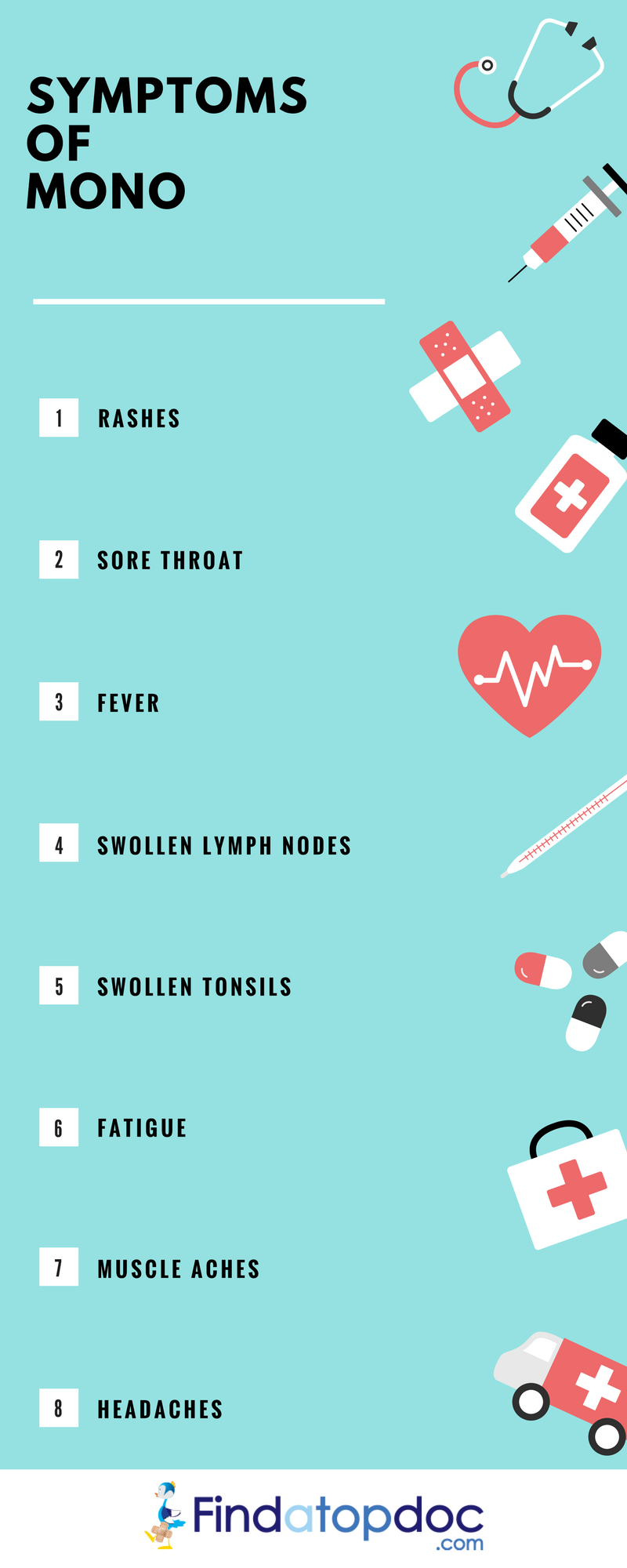It is also known as glandular fever, the kissing disease, and mono. Symptoms of infectious mononucleosis include fatigue, sore throat, fever, and swollen lymph nodes. There is no treatment for mono, but the care involves resting and drinking plenty of fluids.

Source
Symptoms
The most common symptoms of mononucleosis are fever, sore throat, swollen glands and fatigue. Symptoms usually develop between four to six weeks after exposure to the EBV. Other signs and symptoms of mononucleosis may include the following:
- headache,
- rash,
- malaise,
- tonsillitis,
- body aches,
- enlarged spleen and/or liver,
- difficulty breathing.
The goal of treatment is to relieve symptoms. Steroid medicine may be given if your symptoms are severe. Antiviral drugs, such as acyclovir, have little or no benefit.
To relieve typical symptoms:
- Drink plenty of fluids.
- Gargle with warm salt water to ease a sore throat.
- Get plenty of rest.
- Take acetaminophen or ibuprofen for pain and fever.